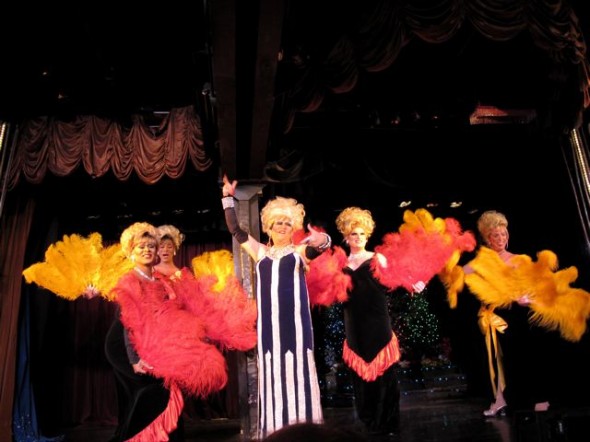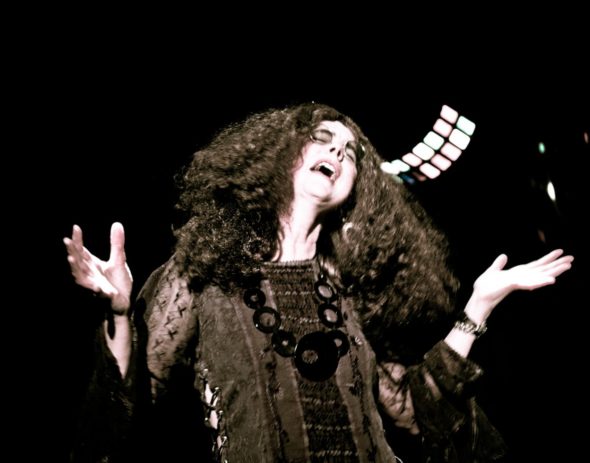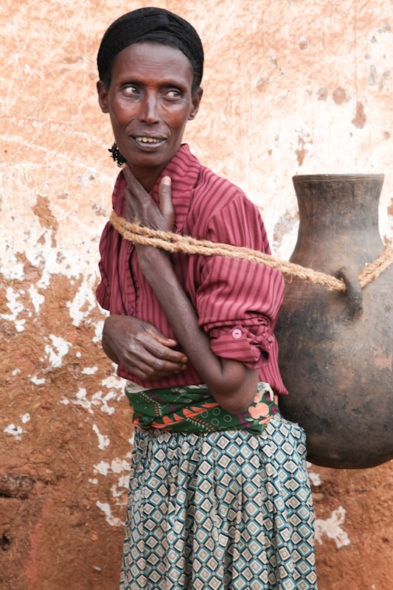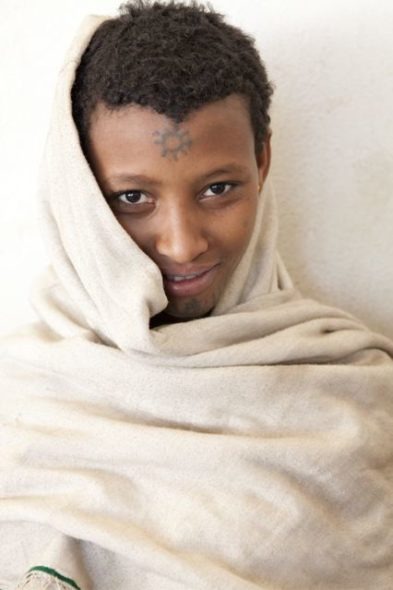Sure enough, we were stopped by the customs officer, with his incredulous question: “These shoes! Are they all yours?” (Really now, do Americans give the impression they would travel with 40 pairs of shoes?) I put on my most confident stance, and picked up the heavy bags, explained that they were donations, and turning on my heel to take off, did not give him time to ask me anything else.
We arrived at the Hamlin Fistula Hospital the next morning, and were instantly astonished at the site of this hospital. Lush gardens were the dominant feature, overshadowing the buildings. It felt as though we were in a fairy tale. We talked with Feven about many things, but one topic was of utmost importance: which direction we should take with our documentation and film.
Feven explained that young girls are often married off young to avoid abduction and rape. When the girl becomes pregnant at an early age, her pelvis is too small to give birth to her baby and she labors for many days and sometimes weeks. The constant pressure of the baby creates many problems.
When the young girl who lives in the rural countryside realizes that her baby is not able to be delivered, she usually has little choice but to wait for the baby to die in her womb. Even after the dead baby shrinks and is able to be delivered or extracted by a family member, she is often left with a fistula condition, where a hole is formed between the bladder and/or rectum and the vagina, and waste continuously flows, resulting in ostracizing from her village and abandonment by her husband.
A girl with a fistula usually will live on the outskirts of the village, afraid to walk for fear of contaminating her surroundings. She sits in a makeshift nest, and waits out her days, sometimes having to fight off hyenas due to her constant smell.
Sadly, this can all be prevented if there was better access to health care in the rural countryside. The Ethiopian government is building hospitals and clinics all over the country to address this. However, most of the clinics stand idle, in desperate need of doctors.
Our time here will be spent in a tiny hospital, which has no running water, in Mota. Dr. Philippa Ribbink will be training Ethiopian Health Officers how to perform emergency obstetrics. We know that this work will have a profound impact on all of us, but sitting here and listening to Feven, we are energized to do this work.
Feven asks us to focus on the inaccessibility that a young pregnant girl faces. Sometimes this means lack of access to hospitals, sometimes it means that while a hospital may exist, no doctors are present. Often it means that the young girl cannot get to the hospital. Foot bridges are washed away, the terrain is too rugged to walk during the 4th or 5th day of laboring, or family men cannot leave their farming work to be able to carry her on a makeshift stretcher. We also hear that more donkey carts are desperately needed to help facilitate her ability to get to a hospital during prolonged labor.
A few weeks earlier, I had made a request to meet Dr. Hamlin. Nothing was promised, as many people ask to meet her and her time is extremely limited. I watch as Feven picks up the phone and dials a number. It is a apparent that she has called Dr. Hamlin, and she asks if she has time to meet us. After a bit of dialoging, we make a plan to come back at 3pm, with our cameras. We have been granted an interview and approval to film her.

A young patient sits on the grounds of the Hamlin Fistula Hospital, in Addis Ababa.

Dr. Hamlin and Feven Haddis are delighted by by the donation of KEEN shoes












